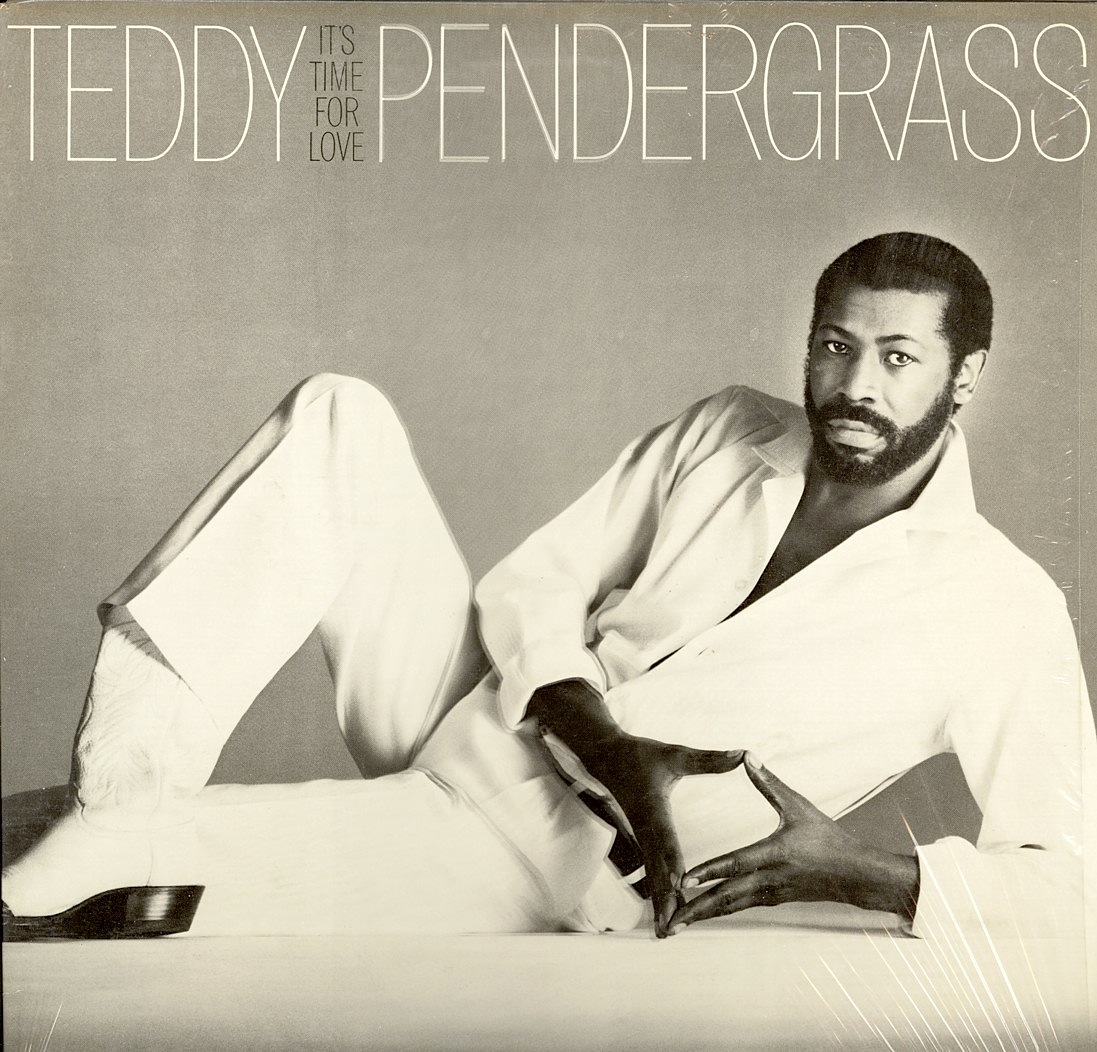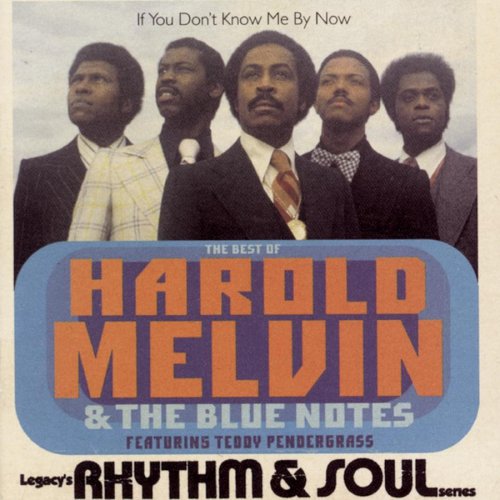
ABC NEWS: Teddy Pendergrass, who became R&B’s reigning sex symbol in the 1970s and ’80s with his forceful, masculine voice and passionate love ballads and later became an inspirational figure after suffering a devastating car accident that left him paralyzed, died Wednesday at age 59. The singer’s son, Teddy Pendergrass II, said his father died at a hospital in suburban Philadelphia. The singer underwent colon cancer surgery eight months ago and had “a difficult recovery,” his son said. “To all his fans who loved his music, thank you,” his son said. “He will live on through his music.” Pendergrass suffered a spinal cord injury and was paralyzed from the waist down in the 1982 car accident. He spent six months in a hospital but returned to recording the next year with the album “Love Language.” He returned to the stage at the Live Aid concert in 1985, performing from his wheelchair. MORE
WIKIPEDIA: Pendergrass’s career began when he was a drummer for The Cadillacs, which soon merged with Harold Melvin & the Blue Notes. Melvin  invited Pendergrass to become the lead singer after he jumped from the rear of a stage and started singing his heart out. Months later the group signed with Gamble & Huff on the then CBS subsidiary Philadelphia International Records in 1972. The Blue Notes had hits such as “I Miss You,” “Bad Luck,” “Wake Up Everybody,” the two million seller “If You Don’t Know Me By Now” and many more. Following personality conflicts between Melvin and Pendergrass, Pendergrass launched a solo career and released hit singles like “The More I Get the More I Want,” “Close the Door,” “I Don’t Love You Anymore,” “Turn Off the Lights” and others.[1] His first solo album was self titled Teddy Pendergrass (1977), followed by Life is a Song Worth Singing (1978), Live Coast to Coast and Teddy (1979), 1980’s TP and the final Philadelphia International Records album It’s Time for Love (1981).[1] He also sang a duet with Whitney Houston on “Hold Me,” from her self-titled debut album. On March 18, 1982, in the Germantown section of Philadelphia on Lincoln Drive, Pendergrass was involved in an automobile accident when the brakes failed on his Rolls-Royce and he hit a tree. Pendergrass and his passenger, Tenika Watson, a transsexual nightclub performer with whom Pendergrass was casually acquainted, were trapped in the wreckage for 45 minutes. While Watson walked away from the accident with minor injuries, Pendergrass suffered a spinal cord injury leaving him paralyzed from the waist down.[4][5]
invited Pendergrass to become the lead singer after he jumped from the rear of a stage and started singing his heart out. Months later the group signed with Gamble & Huff on the then CBS subsidiary Philadelphia International Records in 1972. The Blue Notes had hits such as “I Miss You,” “Bad Luck,” “Wake Up Everybody,” the two million seller “If You Don’t Know Me By Now” and many more. Following personality conflicts between Melvin and Pendergrass, Pendergrass launched a solo career and released hit singles like “The More I Get the More I Want,” “Close the Door,” “I Don’t Love You Anymore,” “Turn Off the Lights” and others.[1] His first solo album was self titled Teddy Pendergrass (1977), followed by Life is a Song Worth Singing (1978), Live Coast to Coast and Teddy (1979), 1980’s TP and the final Philadelphia International Records album It’s Time for Love (1981).[1] He also sang a duet with Whitney Houston on “Hold Me,” from her self-titled debut album. On March 18, 1982, in the Germantown section of Philadelphia on Lincoln Drive, Pendergrass was involved in an automobile accident when the brakes failed on his Rolls-Royce and he hit a tree. Pendergrass and his passenger, Tenika Watson, a transsexual nightclub performer with whom Pendergrass was casually acquainted, were trapped in the wreckage for 45 minutes. While Watson walked away from the accident with minor injuries, Pendergrass suffered a spinal cord injury leaving him paralyzed from the waist down.[4][5]
*
 PHILADELPHIA WEEKLY: That name: Theodore. Translation: gift from God. And it’s God that young Teddy and his mother would serve, even living just above a church at 27th and Dauphin in North Philly. His father Jesse Pendergrass abandoned Ida a month before Teddy was due. And though his father lived just a trolley ride away, young Teddy had no desire to meet him. The boy his father abandoned turned out to be a prodigy. Teddy began singing in church shortly after he learned to walk. He played drums. Sang in his elementary school and junior high school choirs. Formed bands at age 15. Joined Harold Melvin and the Blue Notes at 19, and became the group’s breakout star a few years after that. He met Philly International’s Kenny Gamble and Leon Huff, and well, you know where this is headed. Namely, Teddy Pendergrass, sex icon. He became a pillar of raw, sweaty sexuality. Women threw panties onstage during his shows, many of which were special “ladies only” engagements held at midnight. MORE
PHILADELPHIA WEEKLY: That name: Theodore. Translation: gift from God. And it’s God that young Teddy and his mother would serve, even living just above a church at 27th and Dauphin in North Philly. His father Jesse Pendergrass abandoned Ida a month before Teddy was due. And though his father lived just a trolley ride away, young Teddy had no desire to meet him. The boy his father abandoned turned out to be a prodigy. Teddy began singing in church shortly after he learned to walk. He played drums. Sang in his elementary school and junior high school choirs. Formed bands at age 15. Joined Harold Melvin and the Blue Notes at 19, and became the group’s breakout star a few years after that. He met Philly International’s Kenny Gamble and Leon Huff, and well, you know where this is headed. Namely, Teddy Pendergrass, sex icon. He became a pillar of raw, sweaty sexuality. Women threw panties onstage during his shows, many of which were special “ladies only” engagements held at midnight. MORE
NEW YORK TIMES: His performances rose from breathy whispers to gutsy exhortations, making his voice the deeper, more aggressive counterpart to the styles of 1970s soul men like Al Green and Marvin Gaye. It was the flagship sound for Philadelphia International Records, riding lush strings and big-band disco from the producers Kenny Gamble and Leon Huff. Philadelphia International’s songwriters provided Mr. Pendergrass with material that was forthright but never crude, promising nothing more explicit than a back rub. “Teddy had that big, booming baritone voice, but he was a tender man,” Mr. Huff said in a telephone interview Thursday. “He was very lovable. You could hear it in his music.” By the late ’70s, Mr. Pendergrass’s concerts — some of them presented for women only — drew screaming, ecstatic crowds. Women would fling teddy bears and lingerie onstage. Mr. Gamble called Mr. Pendergrass “the black Elvis.” MORE
